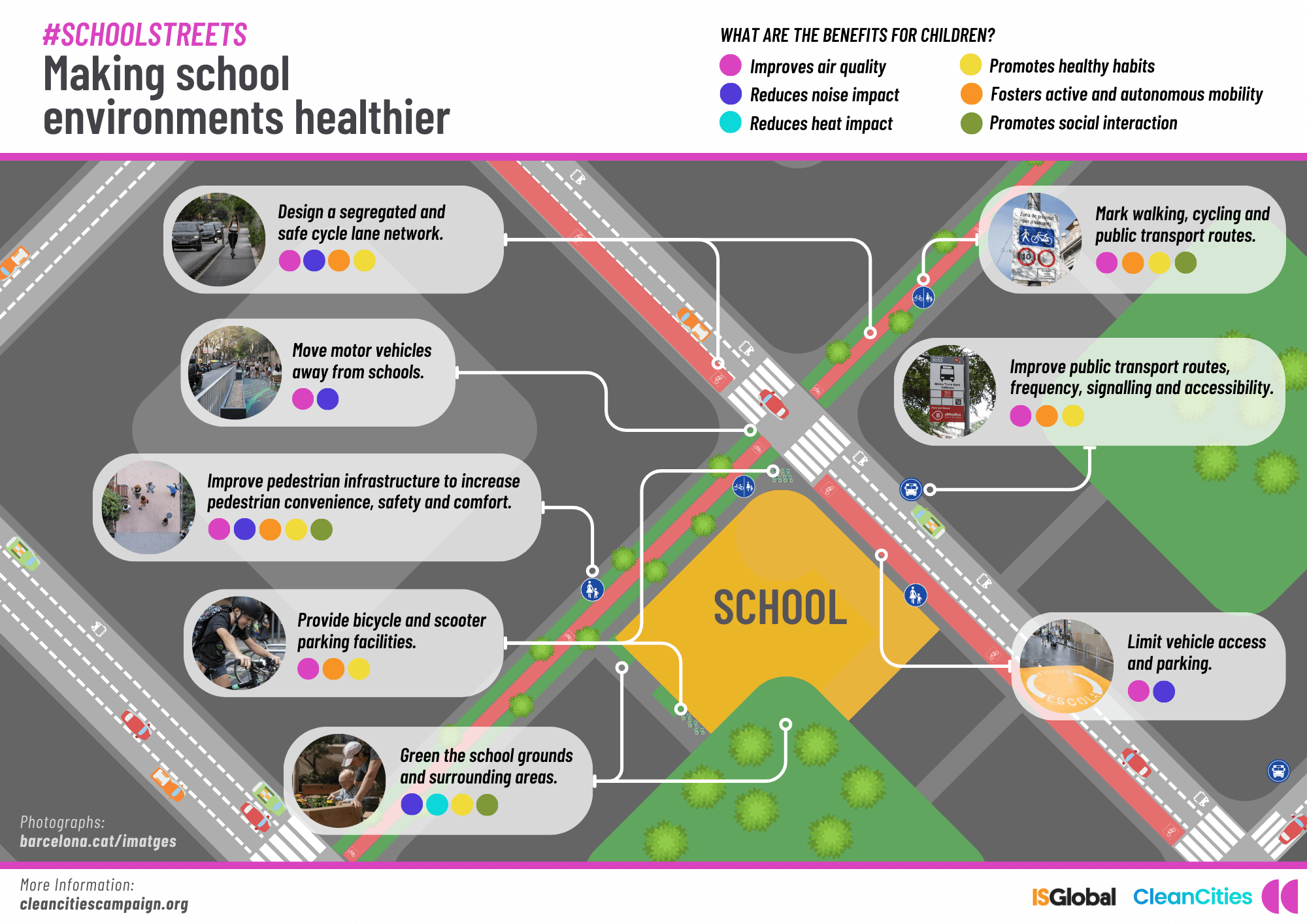
Air pollution and children’s health – let’s protect our future generation with improved ambient air quality guidelines
It is often only when we read about events such as the tragic death and legal case of Ella Roberta, the schoolgirl in London that died of asthma due to air pollution in 2013, that we pause and think about the environments our children are growing up in. Meanwhile, millions of children are suffering the consequences.
Our youngest and most vulnerable, who are our future, do not have the environments they deserve and need to thrive. Most children live in cities that are focal points of air pollution. And they spend up to a quarter of their day in schools that are often urban ‘hotspots’ of environmental exposure, located in dense, polluted areas.
The effects of air pollution can been seen as early as the prenatal stage. Mothers exposed to air pollution give birth to babies with lower birth weights. This low birth weight leads to an increased risk for other longer-term health conditions, says the Barcelona-based ISGlobal health research organisation.
Air pollution and respiratory health
Breathing polluted air affects our respiratory system. Prolonged exposure to air pollution may lead to lower respiratory infections, asthma exacerbations, asthma-related emergency department visits and hospitalizations. High concentrations of NO2 and other air pollutants in and around schools and homes can lead to airflow obstruction and impaired lung function and development in children, especially those with asthma.
Approximately 33 per cent of childhood asthma cases in Europe can be attributed to air pollution. If minimum levels of some air pollutants were met, Europe could prevent more than 200,000 new cases of childhood asthma each year
These lung changes caused by exposure to air pollution in childhood are likely to remain into adulthood. Given that the strongest predictor of COPD (Chronic Obstructive Pulmonary Disease) in adulthood is childhood asthma, airflow obstruction and worse lung function symptoms originating from childhood exposures, strategies to reduce air pollution exposure in childhood would have a positive impact in adulthood.
The negative health effects of air pollution are not limited to the respiratory system, and include the cardiovascular system, weight and brain function and development, which means that air pollution can affect children’s ability to learn.
Air pollution, cognitive health and academic performance
Acute and prolonged exposure of children to air pollution from road traffic can lead to impaired mental brain and cognitive development, poorer executive functions and an increased risk and prevalence of Autism Spectrum Disorder (ASD) and Attention Deficit Hyperactivity Disorder (ADHD).
High concentrations of air pollution in and around schools can negatively affect academic performance and grades, impair problem-solving skills and lead to lower IQ, increased hyperactivity and inattention problems in children and adolescents. Air pollutants are also associated with changes in brain structural morphology, structural connectivity and functional connectivity, which can have long-lasting effects.
Increased air pollution can lead to inequalities in the early years of life and competitive disadvantage because it affects learning and performance.
Air pollution can also reduce learning memory function and increase the risk of developing learning difficulties. A study on air pollution and cognitive development in primary schools in Barcelona found that children in schools with high pollution had lower annual growth in cognitive development (7.4%) compared to those in schools with less pollution (11.5%).
Adolescents’ mental health is also affected, as studies show that exposure to air pollution is associated with symptoms of depression, anxiety, psychotic disorders and poorer overall mental health.
Air pollution and cardivascular health
Exposure to transport-related air pollution can lead to increased blood pressure and hypertension, as well as an increased risk of rapid weight gain and childhood obesity. Childhood obesity is one of the major health challenges in childhood and adolescence in Europe and its health impacts extend into adulthood.
Action is required and improvement is possible
Better air quality is within our reach. We urgently need to create a safer and healthier environment for our children in cities and beyond. High levels of air pollution require action, especially around schools. It is therefore essential to adopt the new European Union (EU) Air Quality Directives that are closer to the World Health Organisation (WHO) recommendations for the health of our children and future generations.
Significant improvement is within our reach through a combination of policies and interventions. Around Europe, there are many groups working to improve environments for children. The Clean Cities Campaign organizes advocacy events through its Streets for Kids and Schools Streets. ISGlobal has supported a number of initiatives such as the School Environments website that has guidelines and resources. Working across different sectors to address air pollution, we can make a significant difference in children´s that will have many lasting benefits.
This paper is co-authored by Mark Nieuwenhuijsen, Carolyn Daher, Inés Valls and Claudia García-Vaz, all from ISGlobal’s Urban Planning, Environment and Health Initiative. It was first published on the ISGlobal blog, and is republished here with the kind permission of ISGlobal.
ISGlobal – The Barcelona Institute for Global Health – was set up in 2010 as a result of an initiative of the ”la Caixa” Foundation working with academic and government institutions interested in creating a centre of excellence in research and knowledge translation in Barcelona equipped to meet the new challenges facing global health in the 21st century





